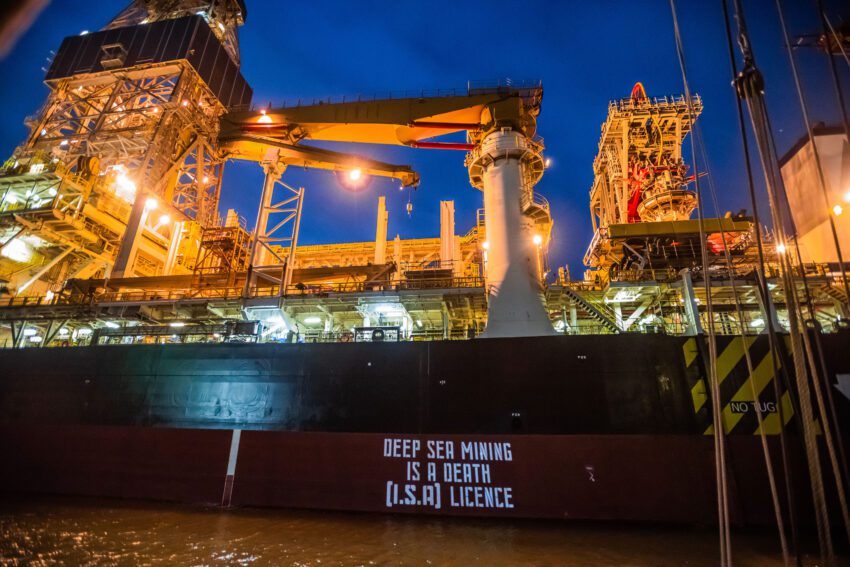
Deep-sea mining is gaining renewed attention as international negotiations are disrupted, raising concerns about environmental impacts and resource management.
Introduction to Deep-Sea Mining
Deep-sea mining involves the extraction of valuable minerals and metals from the ocean floor, targeting resources such as polymetallic nodules, polymetallic sulphides, and seafloor massive sulphides. These materials are crucial for various industries, including electronics, renewable energy, and battery production. As demand for critical minerals rises, particularly for technologies like electric vehicles and renewable energy systems, the allure of deep-sea mining has intensified.
The Current Landscape
Recent developments in deep-sea mining highlight a resurgence of interest in this controversial practice. Various nations and private companies are pushing to explore and exploit the ocean’s depths, often citing the need for critical minerals to support technological advancements. However, this push is met with significant opposition from environmentalists, scientists, and local communities who warn about the potential ecological consequences.
International Negotiations and Political Dynamics
International negotiations surrounding deep-sea mining have been complicated by political factors. The United Nations Convention on the Law of the Sea (UNCLOS) governs the exploration and exploitation of marine resources. However, the process has faced challenges, particularly with the involvement of influential political figures. Notably, former U.S. President Donald Trump’s administration disrupted ongoing negotiations aimed at establishing regulations for deep-sea mining, raising concerns about unilateral actions by nations.
Environmental Concerns
The environmental implications of deep-sea mining are profound. Critics argue that mining activities could lead to irreversible damage to marine ecosystems, including the destruction of habitats and biodiversity loss. The ocean floor is home to unique species that are not found anywhere else, and the disturbance caused by mining could have cascading effects on these fragile ecosystems.
Research has shown that the process of mining can create sediment plumes that smother marine life, disrupt food chains, and release toxic substances. The potential for oil spills and other accidents further exacerbates these concerns. As such, many environmental advocates are calling for a moratorium on deep-sea mining until more comprehensive studies can assess the long-term impacts on ocean health.
Stakeholder Perspectives
Various stakeholders are involved in the deep-sea mining debate, each with distinct interests and priorities. These include governments, private companies, environmental organizations, and local communities. Understanding these perspectives is essential to grasp the complexities of the issue.
Government Interests
Governments see deep-sea mining as a potential economic boon, providing access to critical resources that could enhance national industries and reduce reliance on foreign imports. Countries like Japan, China, and several Pacific Island nations have been particularly active in pursuing mining licenses. However, the lack of a unified international regulatory framework complicates these efforts, leading to concerns about governance and environmental stewardship.
Corporate Interests
Private companies are eager to capitalize on the lucrative opportunities presented by deep-sea mining. Companies involved in exploration and extraction argue that the minerals obtained from the ocean floor are essential for the transition to a green economy. They assert that with proper regulation and oversight, mining can be conducted responsibly. However, critics remain skeptical of the industry’s commitment to environmental protection, pointing to past instances of exploitation and negligence.
Environmental and Community Advocacy
Environmental organizations and local communities are at the forefront of the opposition to deep-sea mining. These groups argue that the potential benefits do not outweigh the risks posed to marine ecosystems and the livelihoods of communities that depend on healthy oceans. Activists have organized protests and campaigns to raise awareness about the threats of deep-sea mining, urging governments to prioritize conservation over exploitation.
Recent Developments and Future Implications
As the debate surrounding deep-sea mining continues, recent developments indicate a potential shift in how this issue is approached. The increasing urgency to secure critical minerals for emerging technologies has led to calls for clearer regulations and more robust environmental assessments. However, the path forward remains fraught with challenges.
Technological Advancements
Innovations in technology may play a pivotal role in shaping the future of deep-sea mining. Companies are exploring new methods that could minimize environmental impacts, such as remote-operated vehicles and automated systems. While these advancements hold promise, they also raise questions about accountability and oversight in the absence of stringent regulations.
Public Awareness and Advocacy
Public awareness of deep-sea mining and its implications has grown, driven by advocacy efforts and media coverage. As more people become educated about the potential risks, there is increasing pressure on governments and corporations to adopt sustainable practices. This shift in public sentiment could influence policy decisions and lead to more comprehensive regulations governing deep-sea mining activities.
Conclusion
The future of deep-sea mining is uncertain, shaped by a complex interplay of economic interests, environmental concerns, and political dynamics. As nations and corporations pursue the extraction of minerals from the ocean floor, the need for responsible governance and environmental stewardship becomes ever more critical. The ongoing debates and negotiations will significantly impact not only the health of marine ecosystems but also the global economy and technological advancements.
Source: Original reporting
Was this helpful?
Last Modified: August 24, 2025 at 7:49 pm
0 views















